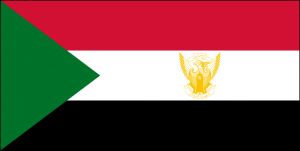Language/Sudanese-arabic/Grammar/Adjectives
Hi Sudanese Arabic learners! 😊
In today's lesson, we will be discussing adjectives in Sudanese Arabic. Adjectives are words that describe or modify nouns and pronouns. They can be used to give more information about the nouns they modify. In this lesson, we will look at how adjectives are formed in Sudanese Arabic and how they are used in sentences.
Formation of Adjectives
Adjectives in Sudanese Arabic are usually formed by adding a suffix to the end of a noun. The suffixes used depend on the gender and number of the noun being modified. For example, the word for “beautiful” is جميل (jamīl). To form an adjective from this word, the suffix -a is added to the end of the word for feminine singular nouns, -at for feminine plural nouns, -an for masculine singular nouns, and -in for masculine plural nouns. So, the word for “beautiful girl” would be جميلة (jamīla), “beautiful girls” would be جميلات (jamīlāt), “beautiful man” would be جميلان (jamīlān), and “beautiful men” would be جميلين (jamīlīn).
Adjective Agreement
When using adjectives in Sudanese Arabic, it is important to make sure that the adjective agrees with the noun it is modifying in terms of gender and number. For example, if you were talking about a group of boys, you would use the masculine plural form of the adjective. If you were talking about a single girl, you would use the feminine singular form of the adjective.
Adjective Placement
In Sudanese Arabic, adjectives usually come after the noun they are modifying. For example, if you wanted to say “the beautiful girl”, you would say البنت الجميلة (al-bintu al-jamīla). However, there are some exceptions to this rule. For example, if the adjective is describing a quality of the noun, it can come before the noun. For example, if you wanted to say “the intelligent girl”, you would say البنت الذكية (al-bintu al-dhakiyya).
Adjective Comparisons
In Sudanese Arabic, adjectives can be compared using the words أكثر (akthar) and أقل (aqal). These words mean “more” and “less” respectively. For example, if you wanted to say “more beautiful”, you would say أكثر جمالا (akthar jamālan).
Conclusion
In this lesson, we have looked at how adjectives are formed and used in Sudanese Arabic. We have seen that adjectives are usually formed by adding a suffix to the end of a noun, and that they usually come after the noun they are modifying. We have also seen that adjectives can be compared using the words أكثر (akthar) and أقل (aqal).
If you have any questions, please ask them in the comments section below.
Feel free to edit this wiki page if you think it can be improved. 😎

